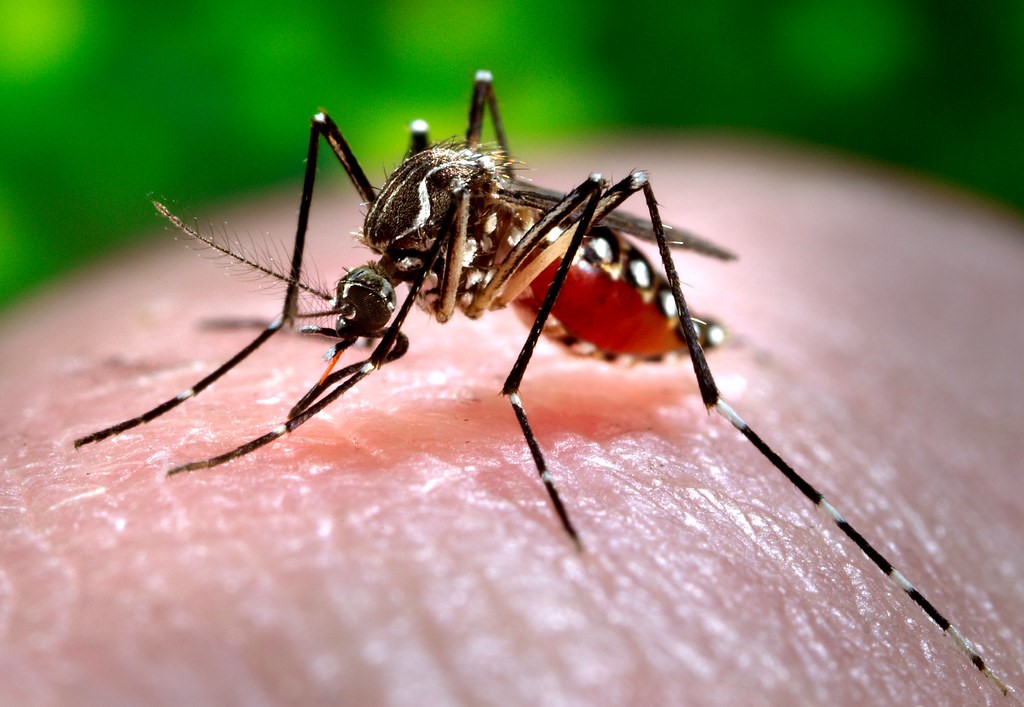
About Dengue Fever
Dengue fever is a disease caused by the dengue virus which is transmitted to humans by infected Aedes mosquitoes. There are 4 dengue virus serotypes (i.e. groups of the same species) – DEN-1, DEN-2, DEN-3 and DEN-4.
Dengue fever usually lasts between 2 to 7 days. Most people recover from dengue infection without requiring hospital admission.
Dengue Symptoms
- Fever
- Headache with pain behind the eyes
- Muscle and joint aches
- Rash
- Mild bleeding tendency (e.g. bleeding from nose or gums, heavy menses)
- Easy bruising
- Nausea and vomiting
Risks of Dengue Fever
The risk of death from dengue is very low, about 1 in 500, to 1 in 1000.
However, dengue can cause low blood pressure and in rare cases may progress to severe dengue (i.e. dengue hemorrhagic fever or dengue shock syndrome).
Symptoms of serious complications may include:
- Major bleeding
- Low blood pressure or shock due to leaking blood vessels or bleeding
- Inflammation of the liver
- Inflammation of other organs such as the heart or brain (rare)
Warning Signs of Dengue Fever
If you develop any of these warning signs, please inform our doctors IMMEDIATELY:
- Severe abdominal pain
- Persistent vomiting
- Vomiting blood
- Black and tarry stools
- Bleeding from nose or gums
- Drowsiness or irritability
- Pale, cold, or clammy (i.e. sweaty) skin=
- Difficulty breathing
Assessment During Hospital Stay
Our doctors and nurses will do clinical assessments and blood tests at regular intervals to determine which stage of dengue you are at.
Patients may undergo the following tests:
-
Full blood count – to assess haematocrit (i.e. blood concentration), platelet count and white blood cells
-
Dengue diagnostic tests – to confirm the diagnosis of dengue
-
Kidney and liver tests – to check for dehydration, kidney and liver function
-
Miscellaneous tests – based on your condition, other tests may be conducted
Treatment of Dengue Fever
There are no antibiotics or anti-viral medications to treat dengue fever. Treatment includes rest and close follow-up with a doctor to monitor your condition.
The main components to managing dengue fever are:
1. Fluid & Electrolyte Replacement
- Drink plenty of fluids (e.g. water, isotonic drinks, fruit juices and soup) to maintain hydration
- Fluids may be given intravenously (i.e. IV drip) if you are unable to drink due to nausea or vomiting
- Some patients may also need to have their electrolytes (e.g. potassium) replaced
2. Symptom Relief & Fever Control
- Painkillers (e.g. paracetamol) to relieve pain and control fever
- Medications may also be prescribed for nausea, vomiting and itch. Rash will usually resolve over 2 to 3 weeks
- Avoid aspirin and other anti-inflammatory drugs such as Brufen® (ibuprofen), Voltaren® (diclofenac), Synflex® (naproxen) or Ponstan® (mefenamic acid) as they may cause gastric ulcers and subsequent bleeding, and worsen platelet function
- If in doubt, please consult your doctor
3. Bleeding Prevention & Control
- Rest in bed, reduce risk of falls and injuries to prevent unnecessary bleeding
- Avoid intramuscular injections (i.e. injection of a substance directly into muscle)
- If you develop bleeding, bruises or swellings, please highlight them to your doctor or nurse immediately.
Discharge from Hospital Stay
If you are admitted early in the course of the illness and show no warning signs (e.g. able to take fluids well), you may be discharged.
If you are admitted late in the course of the illness and show stable signs of recovery (e.g. improving platelet count), you may be discharged.
In both cases, you will require to continue follow-up with the outpatient clinic.
What If I Still Have Symptoms of Dengue Fever After Discharge?
During clinic appointments, our doctors and nurses will continue to perform clinical assessment and blood tests, and monitor your condition and symptoms.
What If I Am Recovering From Dengue Fever After Discharge?
A full blood count test is repeated to confirm that your platelet count and other blood parameters are back to normal. Some patients may also need to have their liver tests repeated. These blood tests can also be done at the polyclinic or GP clinic.
During recovery, you may still feel very tired and weak. It is advisable to have at least a full week of rest before returning to work.
Can I Be Infected Again?
Yes, there are 4 known serotypes of dengue. Infection with one serotype will provide protection against only that particular serotype.
Future infection by other serotypes is possible, and the second infection may cause a more severe reaction.
Can I Spread Dengue to Others?
Dengue is
not transmitted directly from one person to another.
Dengue is transmitted by infected mosquito bites. Persons in the same area may come down with dengue fever if bitten by an infected mosquito.
Prevention of Dengue Fever
1. Get rid of mosquito breeding places (Most effective prevention method)
- Aedes mosquitoes can breed in our house. Items that collect or are used to store water (e.g. flower vase, buckets) must be covered or drained.
2. Reduce the risks of mosquito bites
- Use air conditioning and windows/doors with mosquito screens
- Apply mosquito repellents containing 20% to 30% DEET (diethyltoluamide). DEET helps to deter and repel mosquitoes.
3. Apply these precautions when travelling to other tropical destinations.
